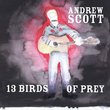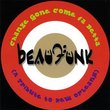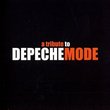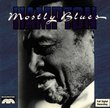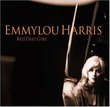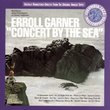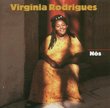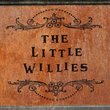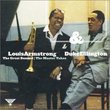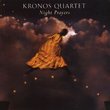| All Artists: AfroCubism Title: AfroCubism Members Wishing: 2 Total Copies: 0 Label: Nonesuch Original Release Date: 1/1/2010 Re-Release Date: 11/2/2010 Genres: International Music, Pop, R&B, Latin Music Styles: Latin Music, Latin Pop Number of Discs: 1 SwapaCD Credits: 1 UPCs: 075597978094, 075597978094 |
Search - AfroCubism :: AfroCubism
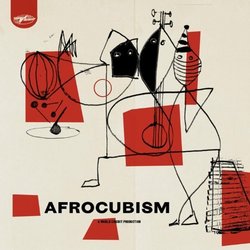 | AfroCubism AfroCubism Genres: International Music, Pop, R&B, Latin Music The great world music album that-never-was has finally been realized. The project that became the Buena Vista Social Club has borne its own extraordinary fruit. — In 1996, a group of Mali's finest musicians were due to fly ... more » |
Larger Image |
CD Details
Synopsis
Product Description
The great world music album that-never-was has finally been realized. The project that became the Buena Vista Social Club has borne its own extraordinary fruit.
In 1996, a group of Mali's finest musicians were due to fly into Havana for a speculative collaboration with some of Cuba's most brilliant singers and instrumentalists. For reasons that have never been made clear, the Malians never arrived. A very different album was recorded: 'The Buena Vista Social Club'. The rest, as they say, is multi-million selling history.
But what about that original album? What riches might have been revealed in the interaction of virtuosi from one of Africa's most musically rich territories, and from Cuba whose music has origins in Africa, and has been hugely influential on the mother continent?
Now we have the opportunity to find out. World Circuit Records' Nick Gold, the man behind the 1996 venture, finally brought the original invitees together with a stellar line-up of additional talent at a series of inspirational sessions and the great lost Afro-Cuban album will be released fourteen years after originally planned.
Fronting the Cuban team is the cowboy-hatted singer and guitarist Eliades Ochoa, singer of the great Buena Vista theme 'Chan Chan.' The two original Malian invitees are multi award-winning ngoni lute master Bassekou Kouyate and the extraordinary Rail Band guitarist Djelimady Tounkara, both universally agreed to be among the world,s great instrumentalists. Joining them are Eliades' Grupo Patria, amongst Cuba's longest running and most revered bands, the mercurial kora genius Toumani Diabaté, legendary Malian griot singer Kasse Mady Diabaté and the innovatory balafon player Lassana Diabaté.
'It was as though the musicians had been holding back their ideas and energy for that moment,' says Gold, who produced the album, with the great Buena Vista engineer Jerry Boys at his side. 'After we'd waited so long, it all came together remarkably easily and spontaneously. The group had never played together before but the music just poured out and it continued to flow over the next few days.' Seventeen songs were recorded in five days, with all the musicians playing together 'live' in one large room. A second session was convened some months later and produced a further nine songs.
The title 'AfroCubism' is advised. This is an album that throws the elements of Cuban and African music in the air and lets them fall in entrancing new patterns.
In 1996, a group of Mali's finest musicians were due to fly into Havana for a speculative collaboration with some of Cuba's most brilliant singers and instrumentalists. For reasons that have never been made clear, the Malians never arrived. A very different album was recorded: 'The Buena Vista Social Club'. The rest, as they say, is multi-million selling history.
But what about that original album? What riches might have been revealed in the interaction of virtuosi from one of Africa's most musically rich territories, and from Cuba whose music has origins in Africa, and has been hugely influential on the mother continent?
Now we have the opportunity to find out. World Circuit Records' Nick Gold, the man behind the 1996 venture, finally brought the original invitees together with a stellar line-up of additional talent at a series of inspirational sessions and the great lost Afro-Cuban album will be released fourteen years after originally planned.
Fronting the Cuban team is the cowboy-hatted singer and guitarist Eliades Ochoa, singer of the great Buena Vista theme 'Chan Chan.' The two original Malian invitees are multi award-winning ngoni lute master Bassekou Kouyate and the extraordinary Rail Band guitarist Djelimady Tounkara, both universally agreed to be among the world,s great instrumentalists. Joining them are Eliades' Grupo Patria, amongst Cuba's longest running and most revered bands, the mercurial kora genius Toumani Diabaté, legendary Malian griot singer Kasse Mady Diabaté and the innovatory balafon player Lassana Diabaté.
'It was as though the musicians had been holding back their ideas and energy for that moment,' says Gold, who produced the album, with the great Buena Vista engineer Jerry Boys at his side. 'After we'd waited so long, it all came together remarkably easily and spontaneously. The group had never played together before but the music just poured out and it continued to flow over the next few days.' Seventeen songs were recorded in five days, with all the musicians playing together 'live' in one large room. A second session was convened some months later and produced a further nine songs.
The title 'AfroCubism' is advised. This is an album that throws the elements of Cuban and African music in the air and lets them fall in entrancing new patterns.
Similar CDs
Similarly Requested CDs
| Lionel Hampton Mostly Blues Genres: Jazz, Pop Label: Music Masters Jazz | |
| Emmylou Harris Red Dirt Girl Genres: Country, Pop Label: Nonesuch | |
| Erroll Garner Concert By the Sea Genres: Jazz, Pop Label: Sony | |
| Bix Beiderbecke Singin the Blues 1 Genres: Jazz, Pop Label: Sony | |
| Blind Boys of Alabama Spirit of the Century Genres: Blues, Jazz, Pop, Christian & Gospel, Gospel Label: Real World | |
| Virginia Rodrigues Nos Genres: Dance & Electronic, International Music, Jazz, Latin Music Label: Hannibal | |


